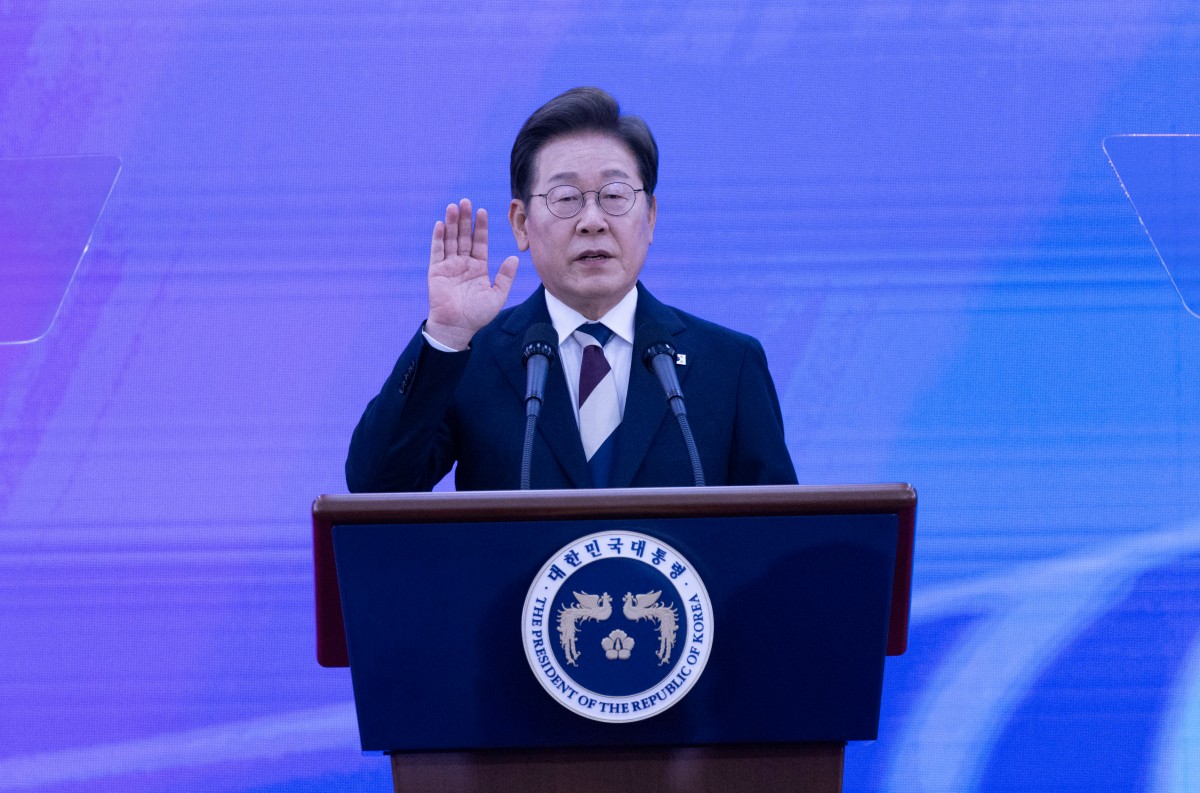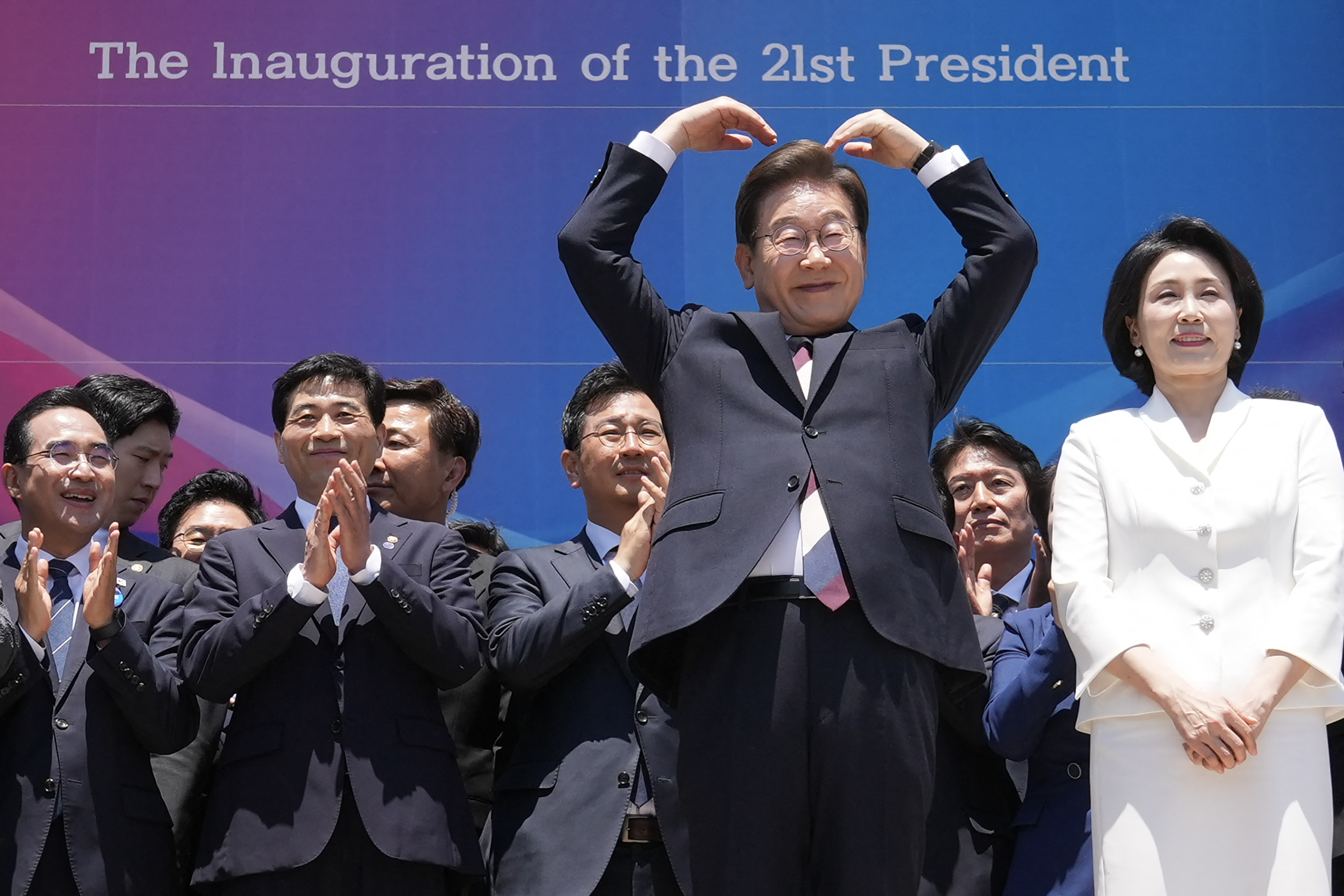
By Agence France-Presse
South Korea’s President Lee Jae-myung vowed to reach out to the nuclear-armed North and “heal wounds” as he took office this Wednesday, June 4, after winning a snap election triggered by his predecessor’s disastrous martial law declaration.
South Korea’s new center-left leader also warned that “rising protectionism and supply chain restructuring” pose an existential threat to Asia’s export-dependent fourth-largest economy, which has been buffeted by the global trade chaos sparked by U.S. President Donald Trump.
Lee scored a thumping victory over conservative Kim Moon-soo of the disgraced ex-president’s former party. His term began immediately after the vote tally was certified on Wednesday.
Lee secured 49.4 percent of the vote, ahead of the 41.2 percent for Kim—who conceded, having been hampered by party in-fighting and a third-party candidate splitting the right-wing vote.
President Lee spoke to South Korea’s top military commander and formally assumed operational control of the country’s armed forces, urging them to maintain “readiness” in case of Pyongyang’s provocations—but said in his first comments that he was ready to talk.
“We will heal the wounds of division and war and establish a future of peace and prosperity. No matter how costly, peace is better than war,” the newly-elected South Korean President said.
He said Seoul would “deter North Korean nuclear and military provocations while opening communication channels and pursuing dialogue and cooperation to build peace on the Korean Peninsula.”
Lee took office just hours before U.S. tariffs on steel and aluminum were due to take effect, with the 50 percent levy hitting crucial South Korean exports.
“The rapid changes in the global order, such as rising protectionism and supply chain restructuring, pose a threat to our very survival,” Lee said.
Markets reacted favorably to the election, with the benchmark KOSPI and the won rising on Wednesday.

‘Significant departure’
“Lee’s comments on North Korea are a ‘significant departure’ from those of his hawkish predecessor, as he did not immediately attach preconditions to dialogue,” said Hong Min, a senior analyst at the Korea Institute for National Unification.
“It signals his desire to resolve disagreements through talks,” Hong added.
Lee held a modest inauguration ceremony at the National Assembly—where former President Yoon deployed armed troops on the night he attempted to suspend civilian rule.
The former also announced a number of top appointments, including long-time adviser Kim Min-seok as prime minister and former unification minister Lee Jong-seok as spy chief.
President Lee’s day is expected to end with a flurry of congratulatory phone calls from world leaders, with Trump likely to be the first on the line.
Trump’s top diplomat, Marco Rubio, was swift to offer his own congratulations and voice hope for working with Lee, who previously sought greater distance from the United States.
Washington’s alliance with Seoul was “ironclad”, the U.S. secretary of state said, citing “shared values and deep economic ties.”
In a statement, the White House described the election as “free and fair”. But it added, “The United States remains concerned and opposed to Chinese interference and influence in democracies around the world.”
Chinese President Xi Jinping congratulated Lee while emphasizing the “great importance to the development of China-South Korea relations.”
“The Chinese side is willing to work with the South Korean side to … firmly maintain the direction of good-neighbor friendship, adhere to the goal of mutual benefit and [ensure a] win-win [situation],” Xi said, according to state media CCTV.
Japanese Prime Minister Shigeru Ishiba also said he wanted to “energize cooperation” between Seoul and Tokyo, South Korea’s former colonial ruler.
And India’s Narendra Modi said on X that he wanted to “strengthen” ties with Seoul as he congratulated Lee.
‘Positive direction’
Lee comes to power with his party already holding a parliamentary majority—secure for the next three years—meaning he is likely to be able to get his legislative agenda done. On the streets of Seoul, South Koreans said they welcomed Lee’s overtures to the North.
“Since our economy and many other aspects of society are closely linked to the state of inter-Korean relations, I hope we can take a long-term perspective and move in a more positive direction,” Choi Ki-ho, 55, told AFP.
Lee Ju-yeon, a 42-year-old quasi-public sector employee, said they hoped President Lee “will devote himself to uniting our divided nation”.
